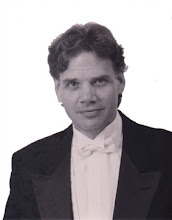Again, one may go wrong in many different ways (because as the Pythagoreans expressed it, evil is of the class of the infinite, good of the finite), but right only in one, and so the former is easy, the latter difficult. Aristotle, Ethics, Book II page 15/28 (project Gutenburg, [read on iphone])
It seemed as if we were confronted rather more with that pesky class of infinite evil than the elusive, finite good during today's rehearsal. I thought our run-through of movement 9 was reasonably successful (what an exquisite piece.) On the other hand, I know that for several of the passages in Rach. movement 12, the words were getting in our way; we had some difficulty with flatting; we had a lot of people missing etc. etc. I just want to make an observation that I suppose is obvious: we are attempting something that is difficult. There's no getting around the fact that the All-Night Vigil is a major undertaking; it just takes a lot of effort to absorb it -- especially the text which is so foreign to most of you. If we all stay on task, we can do this; within a few weeks all of this hard work will start to bear fruit and we will begin to make music for longer stretches of time.
Even though we had a tough rehearsal today, I still feel so privileged to have this opportunity to work with you, and I am thoroughly enjoying this musical adventure with you. You are very welcome to take your scores with you and work on them between rehearsals. If you have some idle moments, one easy, somewhat mechanical task that you can do is to pencil the translation into your score. If you all complete this tedious task, you surely will have a more complete, satisfying experience. Practicing the text is something that is also relatively easy to do on your own; you don't even need a piano or a practice room. I'm hoping you will begin doing this work so often that people will begin to take notice of the strange, bewitched students mumbling in a backwards-sounding language as they walk across campus.

No comments:
Post a Comment